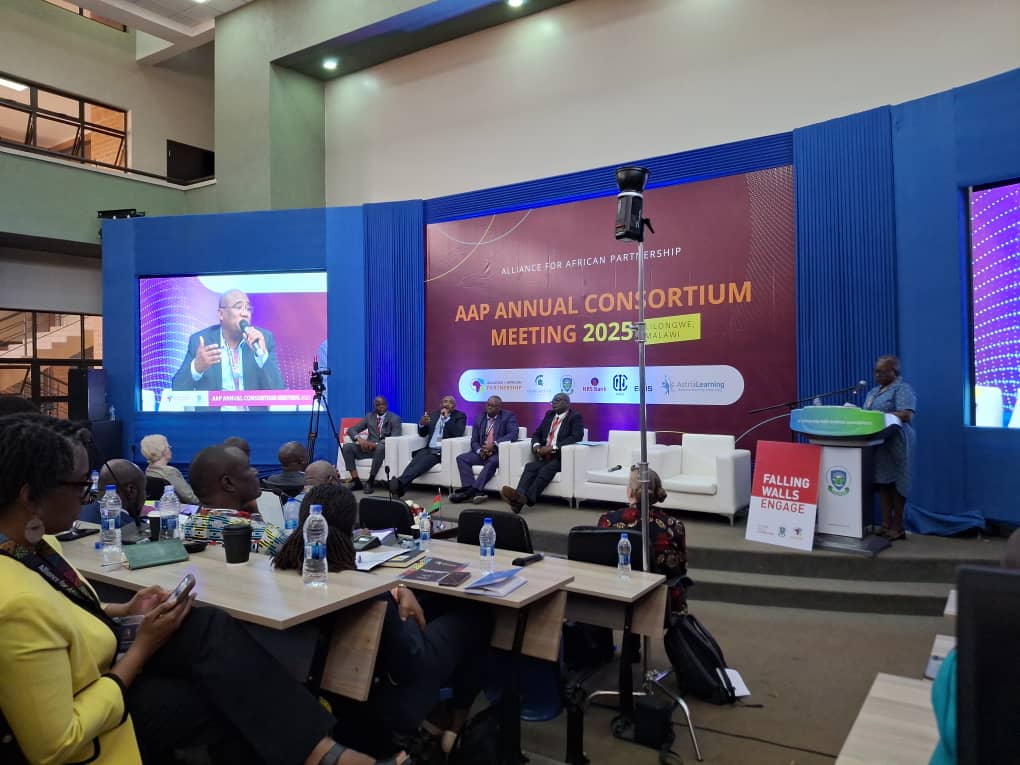UB Strengthens Regional Partnerships at AAP Consortium Meeting in Malawi
 A delegation from the University of Botswana (UB) is currently attending the annual Alliance for African Partnership (AAP) Consortium Meeting, taking place from the 8th -11th of June 2025 in Lilongwe, Malawi. Co-hosted by the Lilongwe University of Agriculture and Natural Resources (LUANAR), the event has brought together Vice Chancellors, academic leaders, research experts, communication specialists and key stakeholders from across Africa.
A delegation from the University of Botswana (UB) is currently attending the annual Alliance for African Partnership (AAP) Consortium Meeting, taking place from the 8th -11th of June 2025 in Lilongwe, Malawi. Co-hosted by the Lilongwe University of Agriculture and Natural Resources (LUANAR), the event has brought together Vice Chancellors, academic leaders, research experts, communication specialists and key stakeholders from across Africa.
The meeting serves as a vital platform to advance collaborative solutions to Africa’s most pressing challenges, celebrate achievements, foster regional engagements and stimulate public dialogue and knowledge exchange. UB’s participation underscores its unwavering commitment to regional cooperation and the strategic use of academic expertise to promote sustainable development and drive transformative impact both regionally and globally.
As one of the longest-serving members of the AAP consortium which includes 11 universities and a policy research institution dedicated to addressing critical African issues, UB continues to play a pivotal role in shaping the consortium’s strategic direction and driving forward its robust initiatives.
The AAP Annual Consortium Meeting focuses on thematic areas critical to Africa’s development including education, research and innovation, agri-food systems, water, energy and environment, youth empowerment, culture and health and nutrition. The discussions ate aimed at identifying innovative approaches and strengthening partnerships that address the multifaceted challenges African universities face as they engage with their communities.
Historically, the University of Botswana has championed collaborative research and capacity building efforts within the AAP framework. At this year’s meeting, UB Vice Chancellor, Professor David Norris, who served as a panelist, emphasised the critical role of science communication and engagement in advancing research impact through co-creation. He highlighted that quality and excellence in science communication remained essential tools for solving societal challenges as universities continued to power economic growth globally.
UB’s delegation has also actively participated in dialogues on entrepreneurship, youth empowerment and regional cooperation. The University’s engagement with regional bodies such as the Southern African Development Community (SADC) demonstrates its ongoing commitment to fostering innovative solutions with meaningful, tangible impacts. Furthermore, UB continues to deepen collaborations with higher education institutions locally, regionally and globally, aligning these partnerships with its strategic development priorities.
In addition to thematic discussions, UB is engaged in conversations around co-creation, navigating the geo-political landscape and resource mobilisation for sustainability. The meeting is set to conclude with actionable outcomes designed to strengthen the AAP’s collaborative efforts and accelerate progress in priority areas.
UB’s active role in the AAP Consortium Meeting reaffirms its vision of becoming a leading force in African higher education and its dedication to building partnerships that pave the way for a prosperous and sustainable future across the continent.